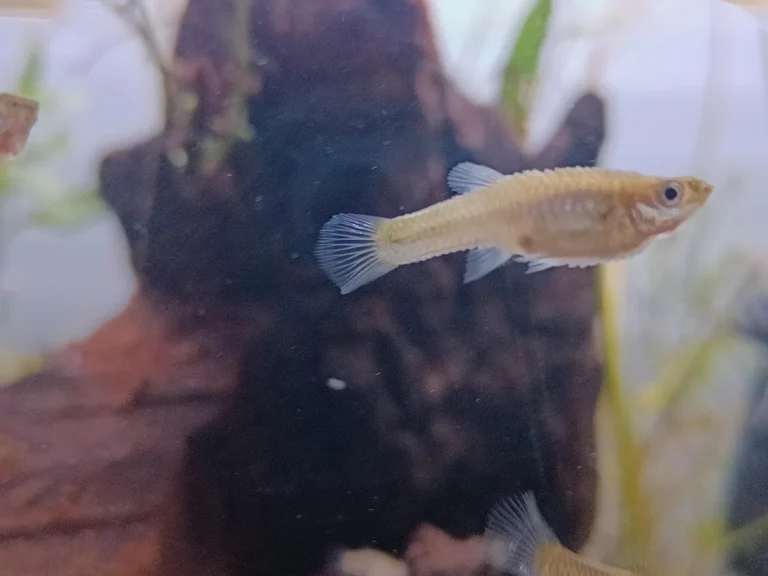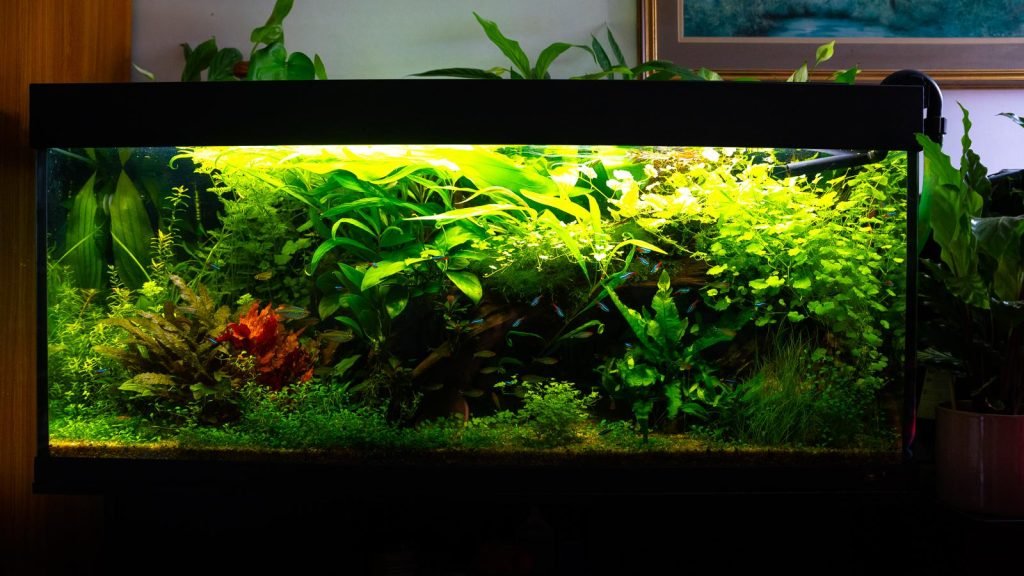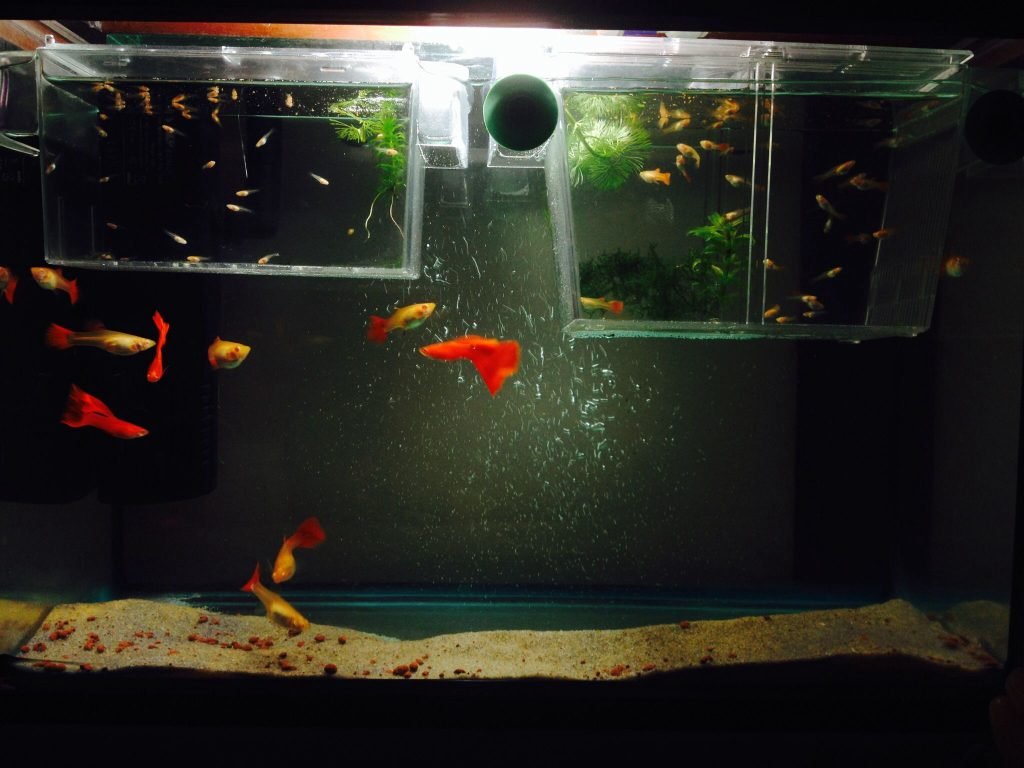5 Ways To Spot Your Guppies Are Stressed
Are you able to see the signs that your guppies are stressed?
In this intro-free article- I’ll walk you through the 5 major signs to spot the behavior and how to fix it.
Let’s start:
Are Your Guppies Stressed?
The 5 major signs that your guppies are stressed are changes in behavior, decreased appetite, physical changes, aggressive behavior, and rapid breathing.
I’m not gonna lie- Guppies are pretty prone to stress, so this isn’t uncommon.
To relieve their stress you could try one or more of the following solutions:
- Look at the water conditions– check the water parameters, water temperature, and amount of dissolved oxygen in the water.
- Look at the tank- is it overcrowded? you should have no more than 1 inch of fish per gallon of water. If you have a lot of plants, decorations, or dead zones created by bubbles and strong filter currents you may have less space than you think.
- Food– are your guppies being fed 2-3 times a day according to their dietary needs?
The 5 Reasons Why Your Guppies Are Stressed
Stress is Changing Their Behavior
One of the first signs of stress in fish is a significant shift in their usual behavior.
The first thing you’ll see is an unusual swimming pattern, such as darting rapidly around the tank or hiding more frequently than usual.
If your guppies suddenly become lethargic, lose interest in food, or spend extended periods near the water’s surface or bottom, it’s a clear indication that your attention is needed.
If the last sentence left you understanding less than before you read it then here’s all you need to know:
If your guppies are acting strange- it’s a sign.
Altered Appetite in Stressed Guppies
We touched a bit on appetite, but this is one of the most common signs you’ll get.
Stress can cause changes in fish appetite.
Look out for a sudden decrease or complete loss of appetite.
If your fish is consistently ignoring food or taking longer to eat, it’s a cause for concern. I am assuming you are not reading this after the first feeding of brand-new food.
But if your guppies aren’t eating the same old food, and not responding to other varieties (like their favorite vegetables or live food)
While occasional loss of appetite can be normal, a on-going refusal to eat can be a sign of stress and potential health issues.
Physical Changes
Keep an eye out for faded or dull coloration, frayed fins, or spots/patches on the body.
Excessive mucus production or visible signs of parasites can also indicate stress.
On the flip side, rapid weight loss or bloating may be signs of underlying health problems but are linked to stress too.

Aggressive or Erratic Behavior
If your usually peaceful fish start displaying aggressive or erratic behavior, it could be a sign of stress.
Look out for chasing, nipping, or fin-nipping among tank mates.
Some fish may become excessively territorial, causing harm to themselves or others. Such behavior indicates a stressful environment that needs attention and intervention
Behavior change can be common in pregnant guppies. They can either become aggressive, but become the victim of aggression from both males or other females.
If just one fish becomes aggressive- provide more hiding spaces. If more than 1 fish changes its behavior than it’s most likely a stress symptom)
Gasping for Air or Breathing Rapidly
Your stressed-out guppy may exhibit respiratory distress by gasping for air at the water’s surface or breathing rapidly.
You can identify low oxygen in your tank by spotting the following behavior:
- Grouping at the top of the tank
- Congregating near the filter or air stone
- Rapid gill movement
- Dull colors
And while this behavior is most common in guppies living in an under-oxygenated tank, it can also be a sign of poor water quality, or high ammonia/nitrite levels.
My Guppies Are Stressed. Now What?
Time is money when dealing with a stressed-out guppy.
Here are the steps you need to take to troubleshoot what causing the stress:
Test Water Conditions For Guppy Stressors
Start by testing your water levels with a testing kit.
Here are the water parameters you’re looking for:
- pH Level: between 7-8
- Hardness: 8-12.
- Ammonia: 0
- Nitrites: 0
- Nitrates: below 20 ppm
- *Temperature: 78-82°F (25-28°C).
* You don’t need a testing kit to test the water temperature.
If your water parameters are out of the optimal range, perform a water change. replace anywhere between 20-50 percent of the water with conditioned, temperature match water.
You may need to clean the bottom of the tank with a siphon pump, depending on how much sediment is there.
Start by testing your water levels with a testing kit.
Here are the water parameters you’re looking for:
- pH Level: between 7-8
- Hardness: 8-12.
- Ammonia: 0
- Nitrites: 0
- Nitrates: below 20 ppm
- *Temperature: 78-82°F (25-28°C).
* You don’t need a testing kit to test the water temperature.
If your water parameters are out of the optimal range, perform a water change. replace anywhere between 20-50 percent of the water with conditioned, temperature match water.
You may need to clean the bottom of the tank with a siphon pump, depending on how much sediment is there.
Is Overcrowding Why Your Guppies Are Stressed?
Guppies require space to swim freely and establish their territories.
Guppies are about 1.5-2 inches and the minimum tank size for them is 10 gallons.
One thing that I see that most beginners never account for is how plants and filters affect their tank.

If your plants account for a big portion of your swimming space, then our 1 inch of fish per gallon of water reccomendation is out the door.
Another factor that can create dead zones is currents.
Those can be created by air stones or your filter. If your guppies are avoiding an area of the tank in particular- it might because currents make it impossible to swim.
But Maybe It's the Lack of Plant?
While we are talking about the topic of plants, don’t think I’m arguing for you to remove them all.
Matter of fact, a lack of hiding spaces is a bigger stressor for your guppies than an overplanted tank.

Guppies are often prey to other fish out in the wild. That is their biggest stressor. They calm their nerves by hiding and blending in vegetation and caves. Without them, they are exposed and vulnerable.
Are Bad Neighbors Why Your Guppies Are Stressed?
Introducing aggressive or incompatible tank mates to your guppy’s environment can result in stress.
Some fish species, especially those who are prone to fin nipping, can cause major stress in guppies.
We’ve mentioned who female guppies, or their presence, can create some aggression in the tank. The way you fix it is with hiding space. If those are not enough and the aggression continues you might need to relocate the aggressive fish.
Last: Poor Diet
Your guppies may be telling you the food you’re feeding them is not up to par.
You should be feeding them about 2-3 times per day, with food designed for tropical fish.
If you have your guppies only eating goldfish food or only eating vegetables- this might be the culprit.
Guppies, like other tropical fish, need a big portion of their diet to be protein. This can be achieved by feeding them commercial food or by preparing live food like brine shrimp.
Conclusion
We’ve covered a lot here today.
Just to quickly sum up, here are the biggest signs your guppies are stressed:
- Changes in behavior
- Decreased appetite
- Physical changes
- Aggressive behavior
- Rapid breathing
Here’s what you can do to alleviate your guppies’ stress:
- Test the water and adjust its parameters as needed.
- Provide ample swimming space and provide hiding spaces.
- remove aggressive tank mates.
- Feed them according to their dietary needs.
